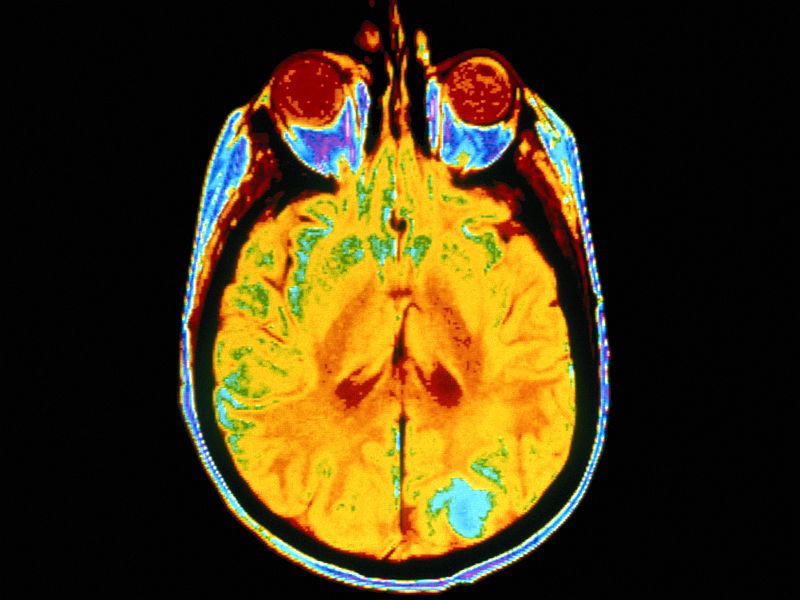Get Healthy!

- Robert Preidt
- Posted April 24, 2020
Could AI Help Doctors Map Out Treatments for Brain Cancers?
Artificial intelligence may reduce the need for glioma brain cancer patients to have biopsies to determine the best treatment for their tumors, researchers report.
Currently, it's common to remove glioma samples from patients and analyze them to select appropriate therapy.
But scientists have been testing imaging techniques that might be used instead of biopsies to assess glioma brain cancer.
A new UT Southwestern study shows that artificial intelligence (AI) can identify a specific genetic mutation in a glioma tumor by examining 3D images of the brain, with more than 97% accuracy.
The approach uses a deep-learning network and standard MRI to detect the status of a gene called isocitrate dehydrogenase (IDH), which produces an enzyme that in mutated form may trigger tumor growth in the brain.
"Knowing a particular mutation status in gliomas is important in determining prognosis and treatment strategies," said researcher Dr. Joseph Maldjian, chief of neuroradiology at the university's O'Donnell Brain Institute.
"The ability to determine this status using just conventional imaging and AI is a great leap forward," he added in a UT Southwestern Medical Center news release.
The study was published recently in the journal Neuro-Oncology.
Glioma brain cancer patients' prognosis and treatment will vary based on whether or not they have an IDH-mutated glioma. However, obtaining an adequate sample of the tumor through biopsy can be time-consuming and risky, particularly if tumors are difficult to reach, the researchers explained.
"The beauty of this new deep-learning model is its simplicity and high degree of accuracy," Maldjian said.
It may be possible to use similar methods to identify other important molecular markers for various cancers, he added.
"We've removed additional pre-processing steps and created an ideal scenario for easily transitioning this into clinical care by using images that are routinely acquired," Maldjian said.
The next step in this research is to test the deep-learning model on larger datasets before deciding whether to use it in the care of glioma brain cancer patients.
Scientists are trying to develop IDH-inhibiting medications. If that's achieved, it might be possible to use those drugs with AI-imaging techniques to radically change how some brain cancers are assessed and treated, according to the study authors.
"In the big picture, we may be able to treat some gliomas without operating on a patient," Maldjian said. "We would use AI to detect an IDH-mutated glioma, then use IDH inhibitors to slow down or reverse the tumor growth. The field of radio-genomics is exploding with possibilities."
More information
The American Brain Tumor Association has more on gliomas.
SOURCE: UT Southwestern Medical Center, news release, April 21, 2020





